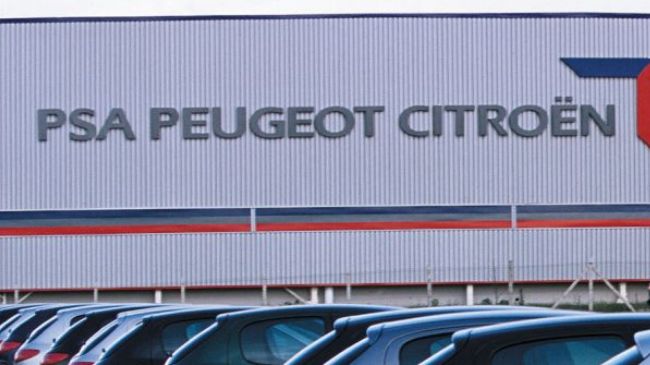Foreign companies seeking to return Iran market

By Sara Rajabova
Following melting the ice in relations between the West and Iran resulted from nuclear talks between two sides, foreign companies are seeking to return the Islamic country's market.
French automaker PSA Peugeot-Citroen is holding negotiations to resume its activities in Iran, two years after they were halted due to the West’s sanctions against Tehran, Press TV reported.
A top representative of the giant carmaker said in Tehran on December 1 that the company is holding "intense" talks on the issue.
In late July, Iran’s leading auto manufacturer, Iran Khodro Company (IKCO), announced plans to cooperate with French automakers, Renault and PSA Peugeot Citroen, to produce four new vehicles in Iran.
IKCO Chief Executive Officer Hashem Yekkeh-Zare said the Iranian carmaker will produce Peugeot 301 and Peugeot 2008 as part of its mutual cooperation with PSA Peugeot Citroen.
He added that Iran Khodro and Peugeot will establish a joint venture with equal shares for car manufacturing. IKCO will also manufacture Clio4 and Capture under an agreement with Renault, he said.
In February 2012, PSA Peugeot Citroen stopped its trade with Iran when the sanctions against the Islamic Republic were extended to the automobile sector. It also halted its exports of vehicles to Iran, which accounted for around 13 percent of the firm’s global deliveries in 2011. It cost the automaker an annual loss of half a million car sales and an estimated 1.5 billion euros in lost revenue last year.
The developments came after the two French automakers showed interest in taking back the significant market position they enjoyed before the U.S.-led sanctions on Iran were toughened in 2012 over the country’s nuclear program.
The foreign companies hope to return to Iranian market as Iran and the five permanent members of the UN Security Council - China, Russia, Britain, France, and the United States - plus Germany are working on a final deal on Tehran’s nuclear program with a view to easing sanctions against the Islamic country. The two sides clinched a landmark interim deal in the Swiss city of Geneva on November 24, 2013.
Meanwhile, Russian oil company LUKOIL is actively negotiating with the Iranian partners to resume work in the country, in particular, on the block Anaran, in case of withdrawal of international sanctions.
Head of the LUKOIL’s Vagit Alekperov has recently said the two sides discussed the future activities of the company after the removal of restrictions and company is interested in returning Iranian market after the lifting of all sanctions.
“At one time we opened Anaran field, which is on the border of Iran and Iraq, together with the Norwegian company. We would like to return to those fields where we know the geology, where we know the infrastructure, where we were already preparing to enter this field,” Alekperov said.
LUKOIL, in consortium with Statoil held in Iran exploration work on the Anaran block. Following the results of the work Azar and Shangule oilfields were discovered. Companies discussed with the Iranian authorities the possibility of mining, but the contract has not been concluded. In 2007, LUKOIL left the project Anaran due to the introduction of international sanctions against Iran. In 2013, Iran reimbursed LUKOIL $ 60 million cost of Anaran project.
Earlier, world oil giants, including Royal Dutch Shell, British Petroleum (BP), Malaysia's Petronas, Spain's Repsol, Russia's second-largest oil producer, LUKOIL, France's Total and Italy's Eni have expressed interest in returning to the Iranian market following a partial relief in the anti-Iran sanctions that come after Geneva deal in November.
Iran sits atop one of the world's largest natural gas reserves of over 33 trillion cubic meters and, in the near future, the country is set to increase its gas processing and transfer capacity to one billion cubic meters per day from the current level of 600 million cubic meters per day.
Here we are to serve you with news right now. It does not cost much, but worth your attention.
Choose to support open, independent, quality journalism and subscribe on a monthly basis.
By subscribing to our online newspaper, you can have full digital access to all news, analysis, and much more.
You can also follow AzerNEWS on Twitter @AzerNewsAz or Facebook @AzerNewsNewspaper
Thank you!
